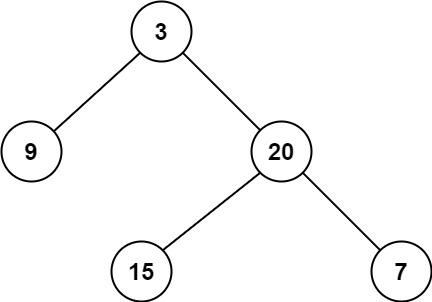Minimum Depth of Binary Tree
Problem
Given a binary tree, find its minimum depth.
The minimum depth is the number of nodes along the shortest path from the root node down to the nearest leaf node.
Note: A leaf is a node with no children.
Example 1:

Input: root = [3,9,20,null,null,15,7] Output: 2
Example 2:
Input: root = [2,null,3,null,4,null,5,null,6] Output: 5
Constraints:
- The number of nodes in the tree is in the range
[0, 105]. -1000 <= Node.val <= 1000
Solution
/**
* Definition for a binary tree node.
* function TreeNode(val, left, right) {
* this.val = (val===undefined ? 0 : val)
* this.left = (left===undefined ? null : left)
* this.right = (right===undefined ? null : right)
* }
*/
/**
* @param {TreeNode} root
* @return {number}
*/
var minDepth = function(root) {
if (!root) {
return 0;
} else if (root.left && root.right) {
return 1 + Math.min(minDepth(root.left), minDepth(root.right));
} else {
return 1 + minDepth(root.left ?? root.right);
}
};
We use standard DFS to find the minimum depth of the tree root.
Optimization
A far better and more optimized solution is to use BFS, since DFS needs to traverse every branch of the tree before terminating (BFS does not).
/**
* Definition for a binary tree node.
* function TreeNode(val, left, right) {
* this.val = (val===undefined ? 0 : val)
* this.left = (left===undefined ? null : left)
* this.right = (right===undefined ? null : right)
* }
*/
/**
* @param {TreeNode} root
* @return {number}
*/
var minDepth = function(root) {
let depth = 0;
const queue = root ? [root] : [];
while (queue.length) {
depth++;
const n = queue.length;
for (let i = 0; i < n; i++) {
const node = queue.shift();
if (!node.left && !node.right) { // leaf node
return depth;
}
if (node.left) {
queue.push(node.left);
}
if (node.right) {
queue.push(node.right);
}
}
}
return depth;
};
We do a level order traversal using BFS, and return the current depth when a leaf node is found.